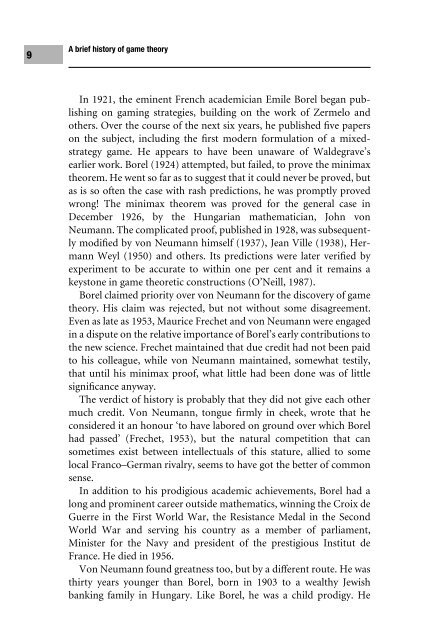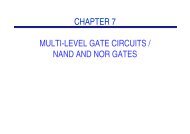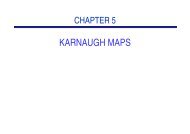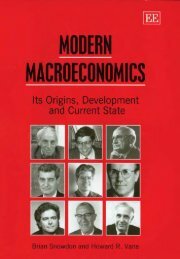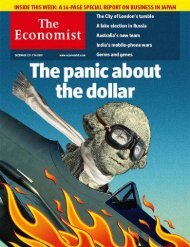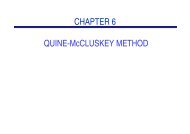Decision Making using Game Theory: An introduction for managers
Decision Making using Game Theory: An introduction for managers
Decision Making using Game Theory: An introduction for managers
- No tags were found...
Create successful ePaper yourself
Turn your PDF publications into a flip-book with our unique Google optimized e-Paper software.
9A brief history of game theoryIn 1921, the eminent French academician Emile Borel began publishingon gaming strategies, building on the work of Zermelo andothers. Over the course of the next six years, he published Wve paperson the subject, including the Wrst modern <strong>for</strong>mulation of a mixedstrategygame. He appears to have been unaware of Waldegrave’searlier work. Borel (1924) attempted, but failed, to prove the minimaxtheorem. He went so far as to suggest that it could never be proved, butas is so often the case with rash predictions, he was promptly provedwrong! The minimax theorem was proved <strong>for</strong> the general case inDecember 1926, by the Hungarian mathematician, John vonNeumann. The complicated proof, published in 1928, was subsequentlymodiWed by von Neumann himself (1937), Jean Ville (1938), HermannWeyl (1950) and others. Its predictions were later veriWed byexperiment to be accurate to within one per cent and it remains akeystone in game theoretic constructions (O’Neill, 1987).Borel claimed priority over von Neumann <strong>for</strong> the discovery of gametheory. His claim was rejected, but not without some disagreement.Even as late as 1953, Maurice Frechet and von Neumann were engagedin a dispute on the relative importance of Borel’s early contributions tothe new science. Frechet maintained that due credit had not been paidto his colleague, while von Neumann maintained, somewhat testily,that until his minimax proof, what little had been done was of littlesigniWcance anyway.The verdict of history is probably that they did not give each othermuch credit. Von Neumann, tongue Wrmly in cheek, wrote that heconsidered it an honour ‘to have labored on ground over which Borelhad passed’ (Frechet, 1953), but the natural competition that cansometimes exist between intellectuals of this stature, allied to somelocal Franco–German rivalry, seems to have got the better of commonsense.In addition to his prodigious academic achievements, Borel had along and prominent career outside mathematics, winning the Croix deGuerre in the First World War, the Resistance Medal in the SecondWorld War and serving his country as a member of parliament,Minister <strong>for</strong> the Navy and president of the prestigious Institut deFrance. He died in 1956.Von Neumann found greatness too, but by a diVerent route. He wasthirty years younger than Borel, born in 1903 to a wealthy Jewishbanking family in Hungary. Like Borel, he was a child prodigy. He


